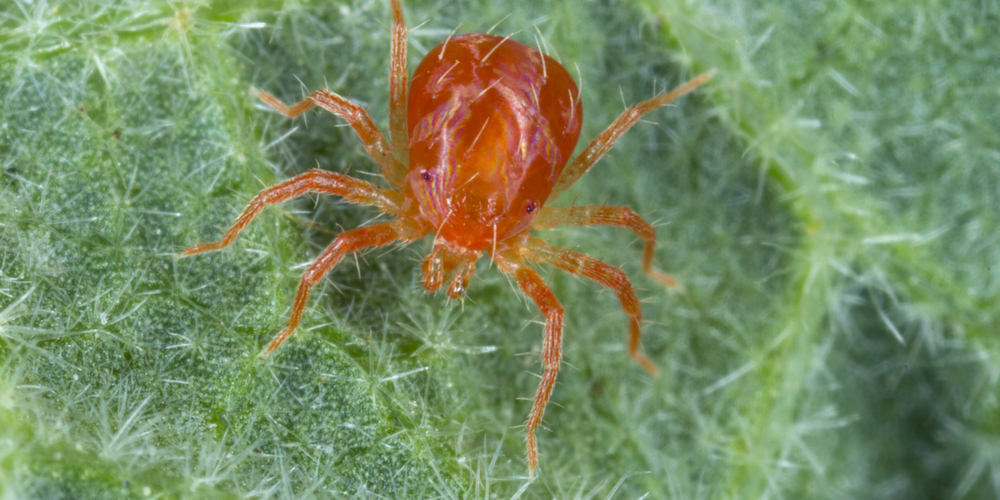One of the best ways to find out if your rosemary plant has a spider mite infestation is to take a yellowed leaf, tap it against a piece of white paper and see if there are tiny yellow dots crawling on it.
How to Get Rid of Spider Mites on Rosemary

Are spider mites on your rosemary proving to be a headache? You can employ these methods to get rid of them.
Spray and Wash with Water Regularly
Water is one of the best and most natural ways to get rid of spider mites on rosemary plants. You can employ several methods to dislodge the insects and prevent the pests from staying, such as regular irrigation and hosing.
Using either a garden hose or a bottle spray, you can give your rosemary plant a bath and remove dust, spider eggs, adult spiders, and their webs. Set the pressure so the minute pests can be washed away quickly. The good news is that it’s not harmful to your plant in any way.
Make sure to cover the whole plant, including the lower stems and undersides of the leaves. As a general rule, you should not let your rosemary’s soil completely dry out, or else it will invite spider mites. Water when the top inch or dry, and daily on hot days.
Use DIY and Natural Pesticides
For those who don’t like using chemical solutions to control plant pests and diseases, don’t worry. As it turns out, spider mites hate dealing with several chemicals, including some that can be concocted right in your kitchen.
White vinegar and soap are effective spider mite sprays, as are chili pepper mixes. You can also use neem oil or horticultural oil to eliminate the pests and leave the beneficial ones unharmed. Oil extracts such as peppermint, thyme, lemongrass, and chamomile may be used, as well as oils made from bell pepper, cayenne, jalapenos, and chili.
It’s recommended that you spray every three days when faced with a heavy spider mite infestation, or once weekly to keep the insects under control.
Be Vigilant and Clean Up
Prevention is the best cure for pests, and incidentally the best way to get rid of spider mites on rosemary plants.
Spider mites tend to make their home on plants that aren’t getting enough water or attention. Rosemary is an easy herb to grow, and most of the time gardeners think that the plant is immune to pests and diseases. However, this isn’t the case.
You can detect spider mites early by inspecting your rosemary plant up close and checking for telltale spider webs. Prune away and clean up yellowed leaves and stems that look sick. You can wipe or give your plant a good wipe or soak each week using a cloth and a soap and water solution.
For heavy spider mite infestations, it may be better to dispose of the plant rather than let the others get affected. Then, follow the recommended care and maintenance so your plant won’t get stressed and become an easy target for these pests.
Pair with Companion Plants
There are certain plants that spider mites dislike. Chrysanthemums, garlic, dill, chili pepper, lettuce, and santolina are just some of the recommended specimens you can pair with your rosemary to ensure a spider mite-free environment.
Alternatively, you can grow cilantro, fennel, cloves, basil, cayenne, and chives to try and ward off rosemary plant pests. You don’t have to plant all of them- just choose what’s easiest for you and read up on how to take care of that specific plant.
Unleash a Natural Predator
Lastly, you can employ natural predators and unleash them in your garden so they can eat up and control spider mite infestations.
Ladybugs, flower bugs, green lacewing, and the assassin bug are some of the best natural predators for spider mites, and they’re readily available to buy in specialized garden shops. Release them on your rosemary and watch them as they get to work. Some can eliminate dozens or even hundreds of spider mites and other harmful pests.
Natural predators tend to stay for a long time in your garden or yard, thus eliminating the need to use chemical insecticides and sprays. They will usually go away on their own in search of spider mites in other areas.
Related Article: Can You Plant Rosemary and Lavender Together?
